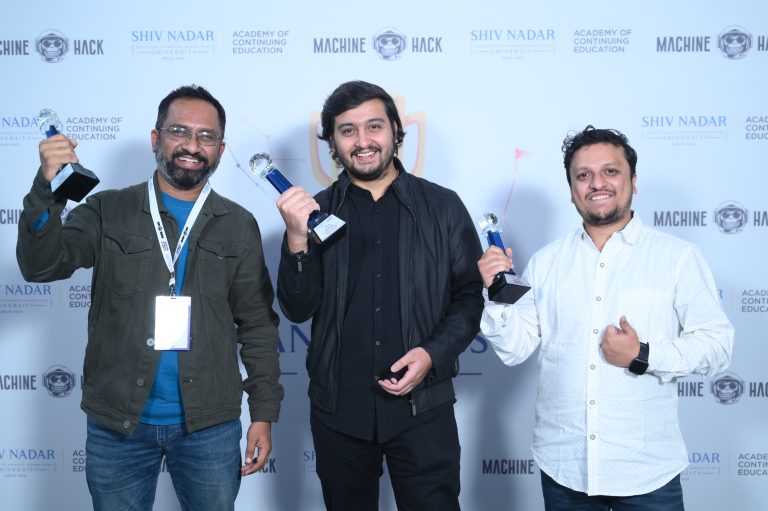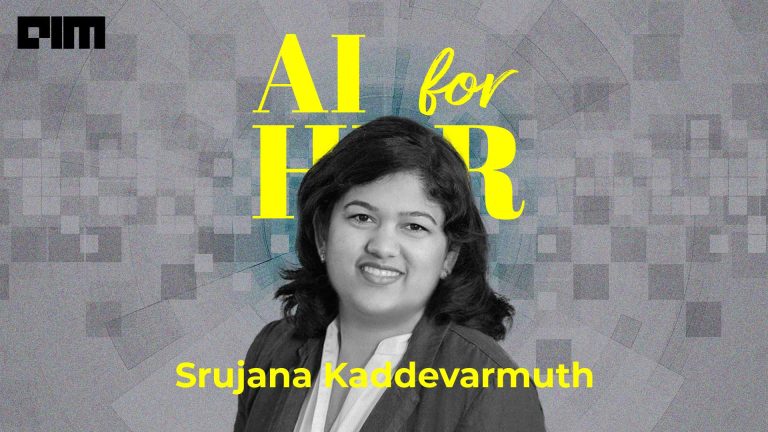|
Listen to this story
|
We often talk about exit polls before election results, but who are these people who create exit polls and how is it done? What goes on behind the scenes? How does the industry function and what impact do they create?
To get these answers and more, Analytics India Magazine reached out to Rimjhim Gour, a research & analysis futurist, co-founder of Sapiens Research, and an ACYPL fellow. Gour has worked for the Uttar Pradesh (2022), Manipur (2022), Assam (2021) and Bihar Assembly Elections (2020) and is currently offering advisory services for the upcoming Gujarat Assembly Elections. She has, so far, researched for over ten Assembly Elections and has had a 100% success rate with respect to the accuracy of her findings.
AIM: What is your 4D approach?
Gour: I’ve worked in more than ten elections now, and we have hit 100% accuracy rate for the last election. Naturally, we tried to figure out why others go wrong.
There are four things that can go wrong in any election and lead to inaccuracy. The first is the distribution of the sample size you’ve chosen. For example, one could barely foresee what would happen in the 2017 Uttar Pradesh elections because survey agencies’ biggest sample size was only 32,000, and that too, in some 100 key constituencies in a state with 403 constituencies. In a state with over 20 crore inhabitants, 32,000 is not even 1% of the population.
So, rather than having a large and unequal distribution size, we began with a more localised strategy. For instance, we talk to a certain number of individuals at each booth – say 100 folks at each booth.

The second factor is diversity. Most of the time, people in the business randomise samples, which I believe is a fine way to go, but when it comes to elections, you have to keep your data extremely stratified, because if 60% of people are from the XYZ caste and the rest are from other caste, you need to know which is the dominant group in the region, hence the need for diversified data. You do not want to end up with the data of the same community of people. For example, if we talk with Yadavs alone in Uttar Pradesh, Samajwadi Party would always be forming the government, and if we talk to Brahmins alone, BJP would get all 403 seats.
The third is dynamism. What most data analysts do is create three buckets and put caste, assembly constituency and gender into them. That won’t work since I may be an upper-class working lady from Delhi, and you have to figure out which component is more important for me. Will I be more inclined to you if you do anything for my caste? Or perhaps community? Or will I be more inclined to support you if you do something that benefits an upper-class working woman? You will need to work on understanding where my preferences are. I may not pay a lot of attention to what my community is, or maybe I will. India is much more complex than that.
Also, what people generally do is, they take a whole month for a survey and then rely on it. For instance on Day 1, you surveyed constituency X and then you’ll come back to that constituency 30 days later. For those 30 days, they rely on that data, which is not a good practice as it’s changing rapidly. You need to have at least a certain mechanism in place where you are coming back to the same constituency every five-six days to know what’s happening.
The fourth factor is digital advances, without which I guess elections can’t happen nowadays.
AIM: How big is the political consulting industry? Can Newcomers survive here?
Gour: It’s pretty large. India is the largest democracy, so let’s accept that we are in the largest market. And because one nation, one election is still not a thing, you always have an election going on somewhere. So while the market is saturated, suggesting there is no room for newcomers would be a little unjust. After all, political consultants don’t actually compete with one another. We frequently outsource and collaborate.
AIM: What’s the difference between Indian elections and elections that happen abroad?
Gour: I’ve worked on a few international elections, and the procedures are incredibly streamlined. There you can, for example, employ tactics such as social listening. However, doing so becomes more challenging in India because the people themselves are not particularly tech-savvy.
The tools we have in the West are far more sophisticated. In India, we’re still catching up, I’d say. While areas like Europe have extremely rigorous data privacy laws, India is a little late on that, which of course is not a good thing for the country, per se, however, with respect to many electoral campaigns, many individuals use that in favour of their strategy setting.
In India, people are not entirely used to technology, and data generation/collection procedures are also not in place or are not totally automated. I don’t think we can proceed further without fixing these, as these are fundamental.
AIM: Do strategies for election in urban areas differ from rural areas?
Gour: Of course, there are several distinctions. In metropolitan areas, electorates are wiser; they are quite like your European citizens. They realise what they actually have to enter into or what links they should not click on, or which news platforms they should follow. Overall, they make more balanced and informed decisions in this regard.
However, in rural areas, individuals freely express their thoughts. If someone likes a link, they talk about it. So, in terms of rural data creation and gathering, everything is comparatively easy. Also, we must recognise that most rural folks prefer Facebook to Instagram or Twitter, where you will largely find your metropolitan population. It also depends on where you work. For example, if you work outside of the mainland or South India, you will encounter individuals who are more active in politics. People discuss music or movies more on social media sites as you move towards the eastern belt, for example. As a result, you may not be able to gain many insights into what they truly believe politically.
AIM: What is your opinion on having an AI member in the Parliament?
Gour: I think it’s a very innovative idea. However, there is a roadblock that I can think of. We have some of the smartest politicians in the country, however, they still have a lot of catching up to do when it comes to technology. They are still those who need printed reports in their hands and assistance in almost all tech-related activities.
Earlier, we had attempted to build an online AI system where policymakers and local leaders like the sarpanch could hold conversations with experts and build a feedback mechanism on the policies and check the status of their execution. Unfortunately, that did not work because of the technical challenges these leaders faced.



















































































